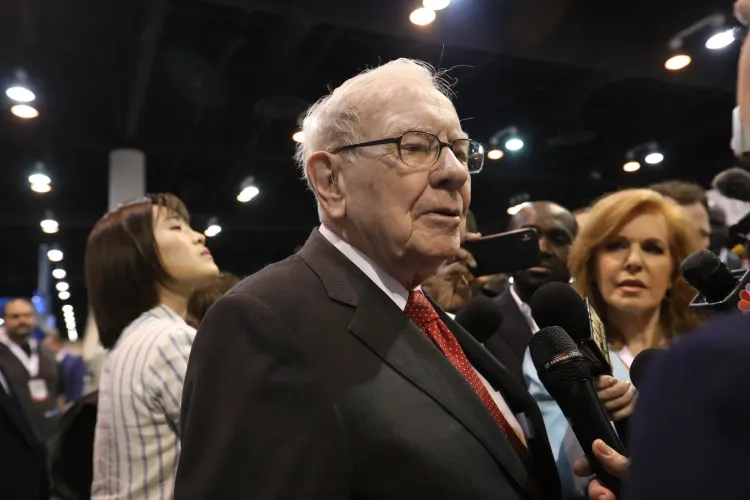Is Warren Buffett Going Quiet While Increasing Philanthropy?

Synopsis
Key Takeaways
- Warren Buffett plans to enhance his philanthropic efforts.
- He will step down as CEO of Berkshire Hathaway at the end of the year.
- Buffett converted and donated $1.35 billion worth of shares.
- Gregory Abel will become the new CEO.
- Buffett's reflections on trade and currency devaluation are significant.
New Delhi, Nov 11 (NationPress) The renowned billionaire philanthropist Warren Buffett has announced in his letter to shareholders that he will "go quiet" following his departure from the role of Chief Executive Officer (CEO) of Berkshire Hathaway at the end of this year.
At 94 years old, Buffett has also committed to intensifying his philanthropic initiatives, vowing to donate the remaining $149 billion in Berkshire stock that he possesses.
In what is likely his last annual letter as CEO, Buffett reflected on his experiences in business and the passage of time, stating, "I am at the office five days a week where I collaborate with remarkable individuals."
He revealed that he had converted 1,800 Class A shares, valued at approximately $1.35 billion, into the company’s more affordable B shares and contributed them to four of his family foundations.
"To enhance the chances that they will manage what will effectively be my entire estate before new trustees take over, I must accelerate the pace of lifetime gifts to their three foundations," he elaborated.
Buffett had previously disclosed that Berkshire Hathaway would be led by Gregory Abel, 63, who has been part of the company since 2000.
He expressed continued optimism for Berkshire Hathaway's prospects, noting that he would retain a "significant amount" of Class A shares until shareholders feel secure with the leadership transition.
Now retired, Warren Buffett ranks among the top five wealthiest individuals globally with a net worth of $152.1 billion.
Earlier this year, Buffett criticized the tariffs implemented by President Trump, deeming them a "big mistake" and cautioned against using trade as a weapon.
He also mentioned that governments have a natural inclination to gradually devalue currency, calling it a "scary" trend and acknowledged that the US dollar is anticipated to weaken against foreign currencies by 2025.









